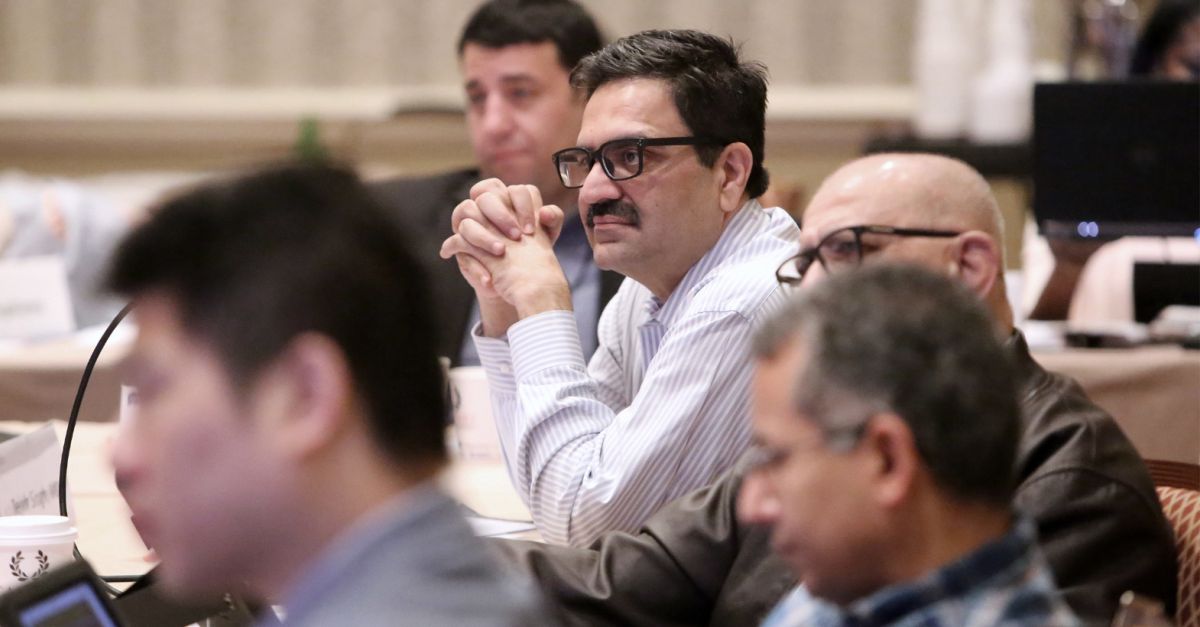As conference season winds down, you can still squeeze value out of your conference experiences. Among the big reasons to attend a major oncology conference are the opportunities you have to make new connections and cultivate new relationships, and the chance to get a leg up on the newest information in your field. To get the very most out of the season, follow these post-conference tips.
1. Keep the Conversation Going
In the first few days after the conference is over, keep the conversation going on social media. This is more important today than ever before. While networking usually tops the list of conference goals, social media enables you to continue these efforts post-conference, often in a more casual environment. On social media, it’s not too late to join in on a discussion of interest or pick up where you left off. It’s also a good way to solidify a relationship with someone you just met at the conference.
Be sure to use dedicated hashtags associated with the conference to share your own insights after the conference is over. Even if you passed on social media engagements during the conference, searching these hashtags post-conference is a great way to identify other healthcare professionals and thought leaders who continue to engage with relevant content online.
2. Write It Down, Pass It Along
Beyond networking, the content presented at a conference is a lot to unload. Conferences can be overwhelming in many ways; taking a minute after the conference to write down your thoughts and experiences and flesh out any session notes is a valuable practice. However, don’t get too down if you can’t remember it all. A good medical communications agency can offer comprehensive conference coverage reports to fill in the gaps!
Pass along the knowledge you gained at the conference to other team members, especially those who might have benefited from attending the conference but couldn’t. Sharing key takeaways and special conference insights will only strengthen your team. Consider preparing a brief email report with relevant links and a PowerPoint presentation, or inviting your colleagues to lunch to let them in on all that conference wisdom.
3. Follow Up With Contacts
You likely came home with a wallet full of business cards that you collected over the conference. After the conference ends, be sure to follow up with the contacts you feel could be valuable to your work or professional interests. When updating LinkedIn, a personalized message that reminds your connection how you met goes a long way. And don’t hesitate to call or text people you really connected with—this type of engagement is truly priceless.
Furthermore, you should facilitate connections by introducing the contacts you made at the conference to people in your existing network. If you help others build their networks, they are more likely to do the same for you! After all, an authentic, vetted introduction is crucial in an industry that relies on large physician networks.
4. Access Conference Content
Download any presentation materials you found valuable following the conference. Conferences often provide access to slide decks, video, and other content right from their websites. If you can’t find what you’re looking for through the website, email an event coordinator or speaker to request the presentation material.
Don’t forget to subscribe to the conference coverage report, which provides premium access to conference content, including presentation summaries, new oncology insights, and relevant links—it also facilitates an ongoing dialogue.
5. Put It Into Practice
After compiling your notes, revisiting specific content, and reaching out to contacts, it’s important to see how you can put what you learned from the conference into action. This is one way to assess the value of a conference. Did you connect with new people who shared similar interests and with whom you might collaborate? Can something you learned at the conference improve your own work? Did the conference make you realize that your company might benefit from a certain skill set, process, or technology not currently in place that addresses new industry standards?
Take concrete steps toward putting into practice what you gained at the conference. On the organizational level, it’s important to collaborate with your team or with other conference attendees who want to do something similar in their organization. Perhaps you connected with members of a group doing something you’d like to implement in your company. Ultimately, if you can use the knowledge and connections from the conference to create better outcomes, that makes the whole experience worthwhile.
By doing these 5 things after the conference ends, you’ll get as much as possible from each experience.

